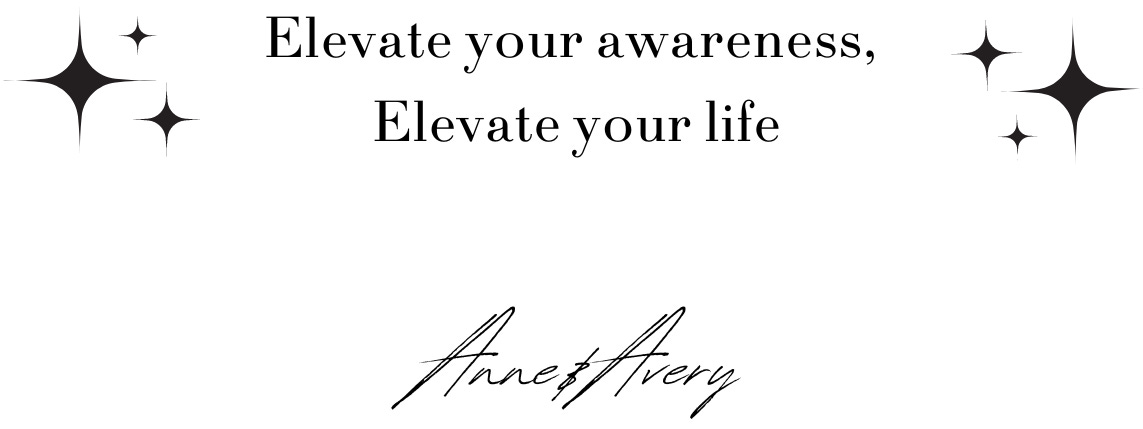Changing how we think can change everything
understanding the connection between mindset and long-term success
Happy Monday, Noosers! If you made a 2025 resolution and you’re still going strong, congrats! You’ve surpassed about a third of goal setters who typically throw in the towel on the second friday of January, known as National Quitter’s Day. On the other hand, if you’ve decided to pivot away from your resolution, maybe that resolution wasn’t right for you. Maybe a modification is more helpful to keep your goal alive. If there are things about it that aren’t sustainable in your lifestyle, but you still want the results, this is a good time to reflect on what changes you can make to hang on or decide what’s really driving your goals.
Like we said last week, as we settle into 2025, remember that creating lasting change isn't about dramatic resolutions or complete lifestyle overhauls. It's about getting curious, staying reflective, and finding what truly works for you. At Noos, we believe the path to better health starts with small, intentional changes that eventually become part of your identity.

The winner of the “December with Intention” challenge has been selected! Subscriber ML will receive the merch of her choice, based on her reflection after the challenge. She felt that the daily checklist helped her focus and be mindful of what she was doing and why she was doing it. We love to hear it!! The challenge doesn’t have to be over. If you’re looking for daily reminders, refer to our checklist — with enough practice it might become your Noos habit!
Thank you, again, for all of your likes and engagement here on Substack. By hitting the ❤️ at the top or bottom of this post, you are helping us get Noos in front of more readers via the substack algorithm! Thank you for your support, we are so appreciative.
Nutrition
Anyone else feeling the post-holiday reset? Last week marked a return to routine in our house — back to school, earlier bedtimes, and home cooking. Avery and I reflected that we feel content and are in solid places when it comes to our health. BUT, that doesn’t mean we didn’t indulge (wine+sweets+takeout, oh my!) and stray from our usual routines. Now I'm craving more veggies and fewer treats, but not because I need to "fix" anything — it's just that natural desire to return to normal after vacation mode. There's something comforting about getting back to our usual rhythms, isn't it?
This natural pull back to our usual eating patterns reveals a lot about our relationship with food. The more neutral our approach to eating, the less likely we are to swing to extremes during holidays or special occasions. When we're at peace with food, we can enjoy celebrations without feeling the need to go overboard or overcorrect afterward. That's why examining our relationship with food matters. It shapes not just our daily choices, but how we handle those "outlier" moments in life.
Your relationship with food is important. It shapes your eating pattern more than you probably realize.
Ultimately, in order to have an eating pattern you’re at ease with, you have to have a healthy relationship with food. Your relationship with food is deeply personal, shaped by years of experiences, cultural influences, and emotional connections. Think back to your childhood. Perhaps you grew up in a household where finishing your plate was mandatory, or where certain foods were labeled as "bad" or "good."
These early experiences help form the foundation of your food ideology, the lens through which you view every meal and snack.
Many of us carry unexamined rules about eating: no carbs after 6 PM, dessert only on weekends, or labeling certain foods as "guilty pleasures." But when was the last time you paused to question these rules? Where did they come from? More importantly, how do they serve you?
Your relationship with food matters because it affects not just what you eat, but how you feel about eating. A strained relationship with food can turn every meal into a mental battleground of calculations and judgments. In contrast, a healthy relationship allows you to tune into your body's signals, enjoy your food mindfully, and make choices from a place of neutrality rather than restriction or guilt.
Consider how your current eating patterns reflect your deeper beliefs. Maybe you avoid foods your parents once labeled as "unhealthy," without considering whether those labels still make sense for you. Or perhaps you find yourself stress-eating in ways that mirror coping mechanisms you learned years ago.
The path to a healthy eating pattern isn't just about knowing what foods to eat. It's about understanding and healing your relationship with food itself. This may mean questioning inherited beliefs, challenging unnecessary rules, and learning to trust your body's wisdom about what, when, and how much to eat.
Take a moment to reflect: when you sit down to eat, are you present with your food, or are you carrying the weight of food rules and judgments? Your relationship with food shapes every bite you take. Making peace with food might be the most important dietary change you can make this year.
Movement
Making a resolution or working towards a long term goal can seem daunting, especially when results don’t come quickly (these things can take time, but who has time for that lol?!). Results usually feed motivation, and when we don’t see results, we can get impatient and throw in the towel.
But, have you ever looked back at a process you went through and thought, “wow, I didn’t think I could do that” — but here you are at the finish line?
Sometimes goals take weeks, months or even years to accomplish. There are a few physical goals I have floating around in my head that will take years. Running another marathon, specifically Boston, may never happen, due to my physical limitations, or maybe they will just take a lot longer than I thought.
The realization that some things will just take a really long time gives me hope that I can eventually get there.
As a health coach, when talking to clients about their personal goals, I often ask them to tell me about a time they previously experienced success in that area. No matter the goal, when they remember a time they felt successful, they remind themselves that they can do it again.
On January 1st of 2023 (somehow two years ago!), I had a couple of resolutions in mind. One of which was to be able to do an unassisted handstand. My friends and family know that I am NOT a gymnast, lol. I can’t do a somersault or a cartwheel (never have). But I thought, if I just kept trying, I might figure it out.
^I recorded this in March of 2023 bc I thought I might stick it and wanted to capture it 🤣.
It took years and most importantly, consistency. I kicked my legs up against the wall and fell down SO many times. I’m sure my kids heard me yelp many times as I crashed down in a heap. I scraped my shins on the siding of my in-laws house practicing in their yard in the summer. I kicked the treadmill falling multiple times in the basement (see video above).
But I told myself I would try once a day for as long as it took. The handstand turned into a headstand. I felt more in control that way. My core and shoulders got stronger and I was able to move my legs around and hold the pose longer. It’s still a daily practice. If I skip it one day, I do it the next.
I figure if I keep doing it, I won’t forget how.
The point is not to show off my headstand (I don’t even know if the form is right, I’m no yogi!), but to give an example of how some things take a long time. Consistency is key.
Knowing I found success, despite it taking so long, gives me hope I can do other difficult things with time on my side.
A little bit of time, each day, can get you to where you want to be. It might look a little different than it did at the beginning (headstand > handstand for me). It might take longer than you think. If there’s something that seems out of your comfort zone or physical capabilities, work your way up. Be patient. What you put your attention to matters. Even if it’s just a little bit, it will add up with daily practice and lead you to accomplish goals you never thought possible.
Behavior
Perception is how we interpret and process sensory information in the moment, based on our current experience and senses. Our perceptions dramatically influence us in more ways than we realize. Wine tastes "better" when we believe it's expensive, a 65-degree day feels warm in winter but cool in summer, and a 30-minute walk feels longer on a treadmill than outdoors.
Take a study done with MIT students and beer. Researchers served students two different beers — one regular and one with a few drops of balsamic vinegar. When students weren't told about the vinegar beforehand, many actually preferred the vinegar-laced beer. However, when informed before tasting, their perception shifted dramatically, and they rated it poorly.
This isn't just about beer preferences. It's a window into how our minds work. Knowledge and preconceptions color every experience, from the food we eat to the challenges we face. If your older son tells your younger daughter not to eat the dinner because it tastes disgusting (before she tries it), chances are she, too, will dislike the dinner (thanks, Robert 🤣). It’s amazing how quickly a delicious dish can turn disgusting when revealed the marinara sauce contains carrots and onions. Just as students' awareness of the balsamic vinegar changed their taste experience, our mindset (whether fixed or growth-oriented) influences how we approach life's opportunities and obstacles.
Think about how this plays out in daily life. When we approach a task believing we can improve (growth mindset), we're more likely to persist and learn from setbacks. Think back to the headstand resolution — a growth mindset is trying a headstand and continuing to show up no matter how many falls. Conversely, a fixed mindset can limit our potential before we even begin. “I am so clumsy, there is no way I could ever do a headstand.” The power of perception extends beyond individual moments — it shapes our habits, decisions, and ultimately, our success.
Understanding this influence of perception can be transformative. Just as being informed about how ingredients might change our food preferences, being aware of our mindset patterns allows us to make more conscious choices. It's not about ignoring our preconceptions, but rather acknowledging them and choosing whether or not to let them guide our decisions.
The key isn't just what we know, but how we use that knowledge to inform our choices and shape our experiences. Sometimes, like those MIT students, we might find that less information leads to more genuine experiences. Other times, deeper understanding enables better decisions. The art lies in knowing when each approach serves us best.
Thank you again for reading, we are going to be sending out our January Q&A next week — we have some great questions! It is a paid feature, so if you’re curious about what our monthly Q&A looks like or want to ask a question, consider upgrading your subscription!
Until next time…









Love Avery's headstand journey!! Very inspirational regarding persistence, especially when results seem invisible and/or out-of-reach. FYI, taking note (on a gratitude list) of the tiniest step towards an overwhelming process/problem can help to counter my sense of hopelessness. I still judge my lack of progress but highlighting an effort to try, even minimally, helps my momentum.
What great reflection, Susan! Thank you so much for commenting, we love to hear it ❤️